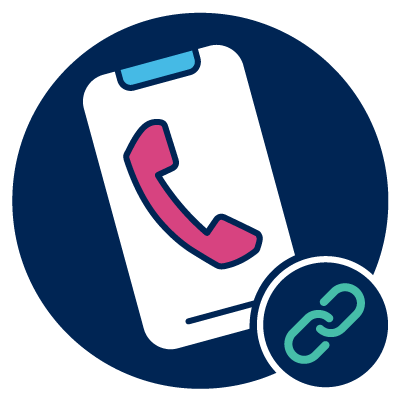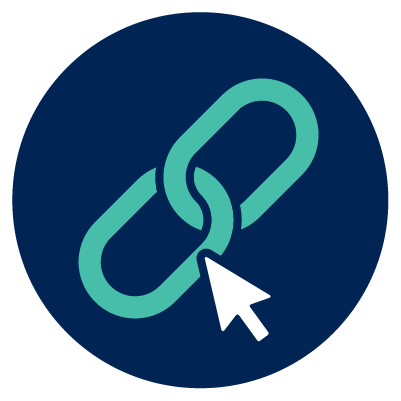Who is eligible for Employment Assistance Fund
You need to meet disability, work and Australian residency conditions to get support through the Employment Assistance Fund (EAF).
Who can use the EAF?
The EAF is for people with disability who need workplace changes, equipment or services to support them to do their job or get a job.
To be eligible for the EAF, you must:
- be an Australian resident
- have a job, or have been offered a job, where the work will go for at least 13 weeks – there may be exceptions for shorter periods or for seasonal work
- be working at least 8 hours a week
- if you’re self-employed, have been working at least 8 hours a week for the last 13 weeks. And earning an hourly amount that is the same as the national minimum wage or more
- have an ongoing disability that has lasted, or will last, at least 2 years. This disability must limit, restrict or affect your ability to work.
JobAccess will assess each application on a case-by-case basis.
EAF for job seekers
You may also be able to apply for the EAF if you’re an eligible job seeker and need support. For example:
- if you need Auslan interpreting at a job interview
- assisted technology to help you look for work.
What is an Australian resident?
An Australian resident is a person who lives in Australia and is one of the following:
- an Australian citizen
- a permanent resident visa holder
- a protected Special Category visa holder.
You may also be eligible for the EAF if you have a Temporary Protection Visa (TPV) or a Safe Haven Enterprise Visa (SHEV).
More information
Read the EAF guidelines for full details. You can also contact a JobAccess Adviser on 1800 464 800 or through our online enquiry form.
Useful Downloads
Related pages
Last updated:
Who is eligible for Employment Assistance Fund
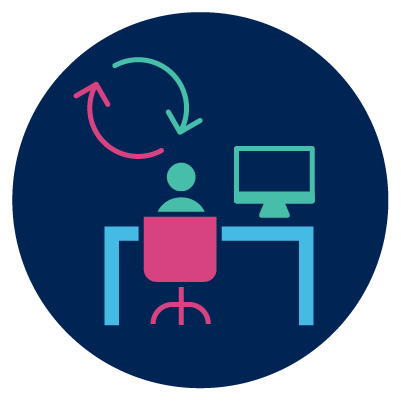
You can get support to make changes to the place where you work to help you do your job.
You can also get support to cover the cost of services, including Auslan services.
You need to meet the rules about who can get this support.
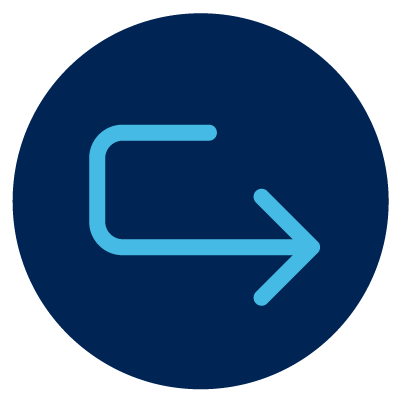
On this page:
Who can get support?
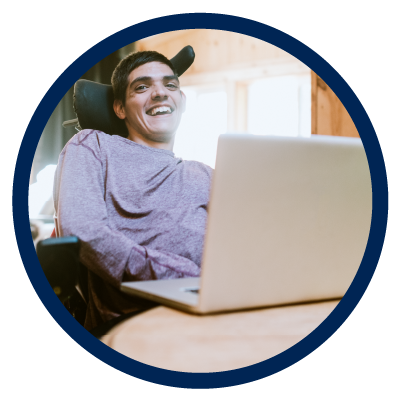
The The EAF can cover the cost of supports and services so people with disability can do their job and get help with finding a job. can support you if you’re a person with disability.
You must be:
- looking for work
- already working
- working for yourself.

You must live in Australia.
We explain this more in the next section.
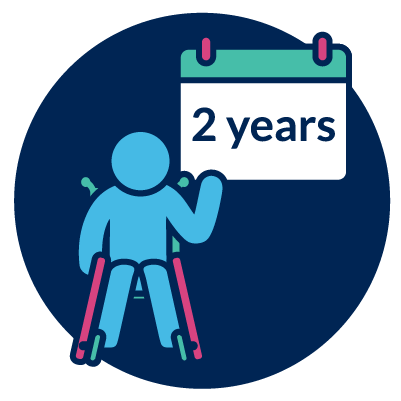
You must have a disability that affects how you work.
It must also:
- have lasted for 2 years
or
- will last for at least 2 years.
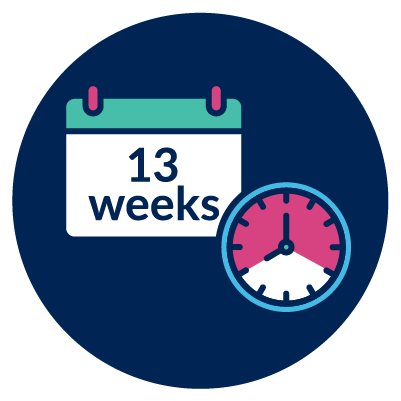
And you must have a job or job offer.
This must be for a job where you work:
- at least 8 hours a week
- for at least 13 weeks.
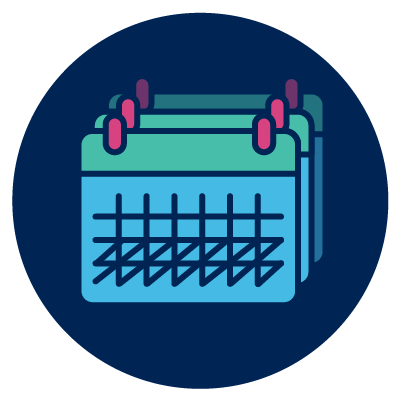
But you might be able to get support from the EAF if your work lasts for less than 13 weeks.
For example, if your work only happens at certain times of the year.
We call this ‘seasonal work’.
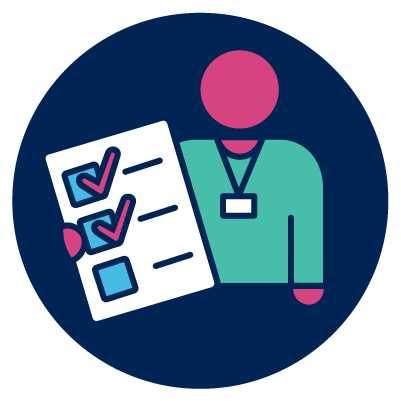
We will check your situation when you apply for the EAF.
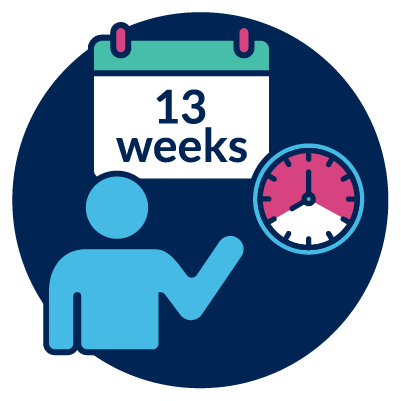
If you work for yourself, when you apply for the EAF you must have worked:
- at least 8 hours a week
and
- for the last 13 weeks.
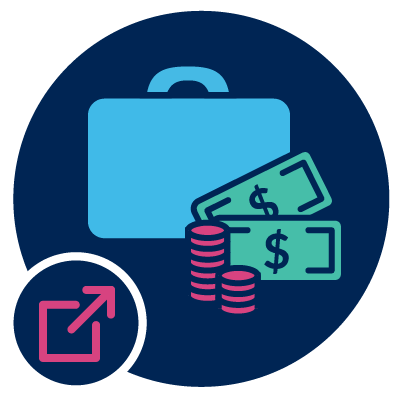
You also must have earned at least the The national minimum wage is the minimum amount someone can earn per hour for their work in Australia.
You can learn more about the national minimum wage on the Fair Work Commission website.

You can also apply for the EAF if you are looking for a job.
For example, if you need:
- someone who can support you in an interview
- Assistive technology is an aid or piece of equipment that supports you to work. to help you look for work.
Living in Australia
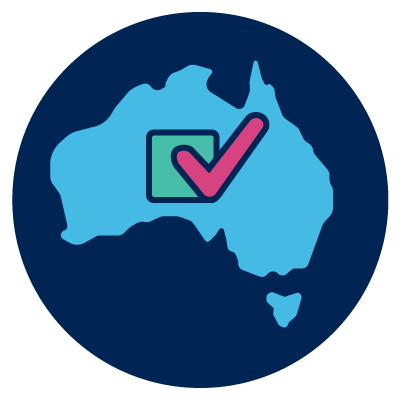
To meet the rules about living in Australia, you must be:
- an Australian citizen
or
- a If you are a permanent resident of a country, you are allowed to live there but you are not a citizen
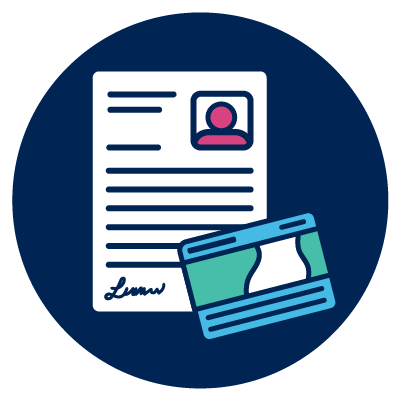
You might also meet the rules about living in Australia if you have one of these types of A visa is a document that says you can go to another country for a certain amount of time. This might be to travel, work or live.
- protected Special Category visa
- Temporary Protection Visa (TPV)
- Safe Haven Enterprise Visa (SHEV).
More information
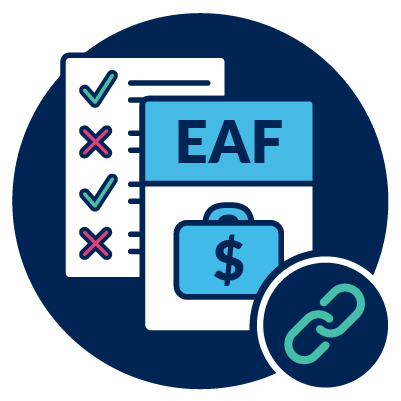
You can find out more information on our page about the EAF guidelines.
